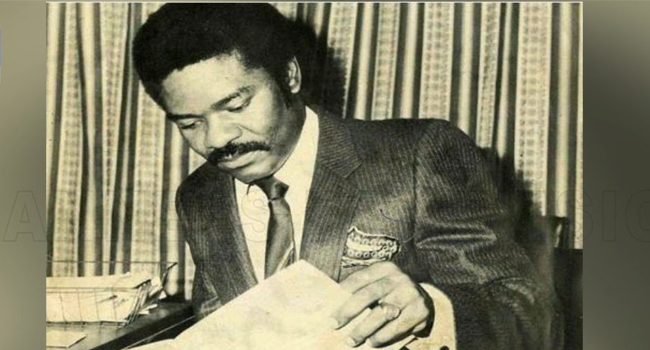A Federal High Court in Abuja on Friday ordered the Federal Government to conduct investigations and prosecute individuals responsible for the killing of journalists in Nigeria between 1986 and 2023.
During this period, notable individuals such as the founder of Newswatch Magazine, Dele Giwa, Bagauda Kaltho, Alex Ogbu, Ikechukwu Onubogu, Maxwell Nashan, Onifade Pelumi, and Precious Owolabi were among those who lost their lives.
The Incorporated Trustees of Media Rights Agenda took legal action against the Attorney-General of the Federation, seeking various reliefs, including a declaration that the killing of Nigerian journalists constitutes a violation of their fundamental rights to life. The organization also sought the enforcement of media practitioners’ fundamental rights to safety as guaranteed by the 1999 Constitution and the African Charter on Human Rights.
Additionally, MRA argued that some journalists continue to face harassment by security agencies while carrying out their duties, with the Attorney-General allegedly taking no action to address this issue.
In delivering the judgment, Justice Inyang Ekwo emphasized that extrajudicial acts cannot occur without the Federal Government investigating and prosecuting them. He further asserted that the Attorney-General, as the chief law officer of the federation, is obligated to prosecute and sanction those responsible for the killings of media practitioners in the country.
Ekwo said, “An order is hereby made directing the Federal Government of Nigeria to investigate, prosecute, and punish perpetrators of all attacks against journalists and other media practitioners, and ensure that all victims of attacks against journalists have access to effective remedies. “
He also ordered the FG to ensure adequate protection and safety of the lives of journalists as enshrined in sections 33, and 39 of the Constitution and Articles 4 and 9 of the African Charter on Human and Peoples Rights.
“An order is hereby made directing the Federal Government of Nigeria to take measures to raise awareness and build the capacities of various stakeholders, particularly journalists and other media practitioners, policymakers, law enforcement, security, intelligence, military as well as other officials and relevant stakeholders on the laws and standards for ensuring the safety of journalists and media practitioners, “Ekwo added.
Nevertheless, he directed the Federal Government to implement measures aimed at preventing attacks on journalists.
Responding to this decision, Senior Advocate of Nigeria, Norrison Quakers, lauded the judgment of the Federal High Court.
Quackers acknowledged that while the judgment represents a positive step for the country’s justice system, there remains a concern regarding the execution of the investigation. He urged the Federal Government to comply with the court order by initiating the probe into the deaths of the late Giwa.
He said, “It is a good one as the court is ordering the government, and in law, there is no time-bound to criminal prosecution and even investigation unlike a civil case because this has to do with deaths and the lives of some journalists who have been cut short.
“Recall that even the Attorney-General of the federation under former President Olusegun Obasanjo, Chief Bola Ige, was also murdered while he was still serving and from that time till now arrests have not really been made and investigations have not been carried out to the point where people are arrested or prosecuted. Funsho Williams was also murdered in Lagos State among others. There are many such crimes.
“It is a welcome development. The question is how far can the Federal Government go to carry out the investigation? Are the people involved at that time still around to be asked questions? Can the military men who were also accused of being complicit in that be arrested? Is the will actually there to enforce this judgment, the directive of the court against the government to carry out investigations?”
Meanwhile, the Executive Director of the International Press Centre, Lanre Arogundade, praised the verdict, commending Justice Inyang Ekwo for refusing to let such an issue fade away.
He emphasized the significance of the court order, particularly its extension to other journalists who lost their lives, often under contentious circumstances.
Arogundade highlighted that if the Federal Government adheres to the court’s directive and promptly takes action, it would send a positive message regarding the administration’s commitment to upholding the rule of law, press freedom, and freedom of expression. Such action, he argued, would deter potential criminals from engaging in similar crimes in the future.
Arogundade said, “It has always been a worrisome development for us that journalists could just be killed or disappear particularly even after we have left the military era, and the trend has been persistent. In terms of what it means, I suppose that this order can send a signal to whoever is planning to attack journalists that they may not go scot-free which means that it is good and hopefully serve as a kind of warning or disincentive for anyone for whatever reason to assault or attack journalists.
“For me, it is a very welcoming development. If the Federal Government takes immediate steps to abide by the court order, it will send the signal that they believe in the rule of law and Press Freedom, Freedom of Expression. I will not want to speculate but to assume that the government through its appropriate agencies will have no reason not to obey and carry out the instructions of the court.”



